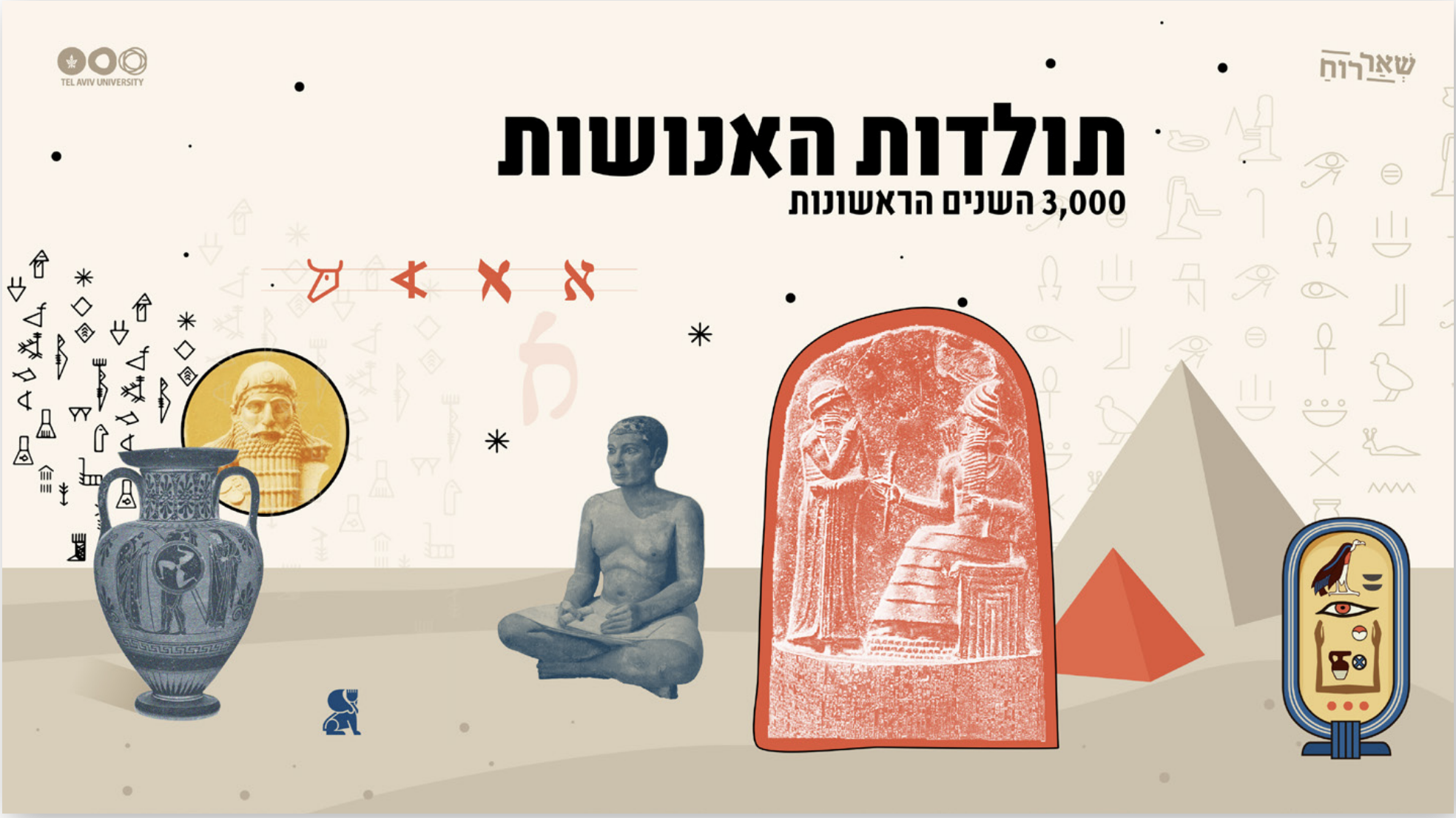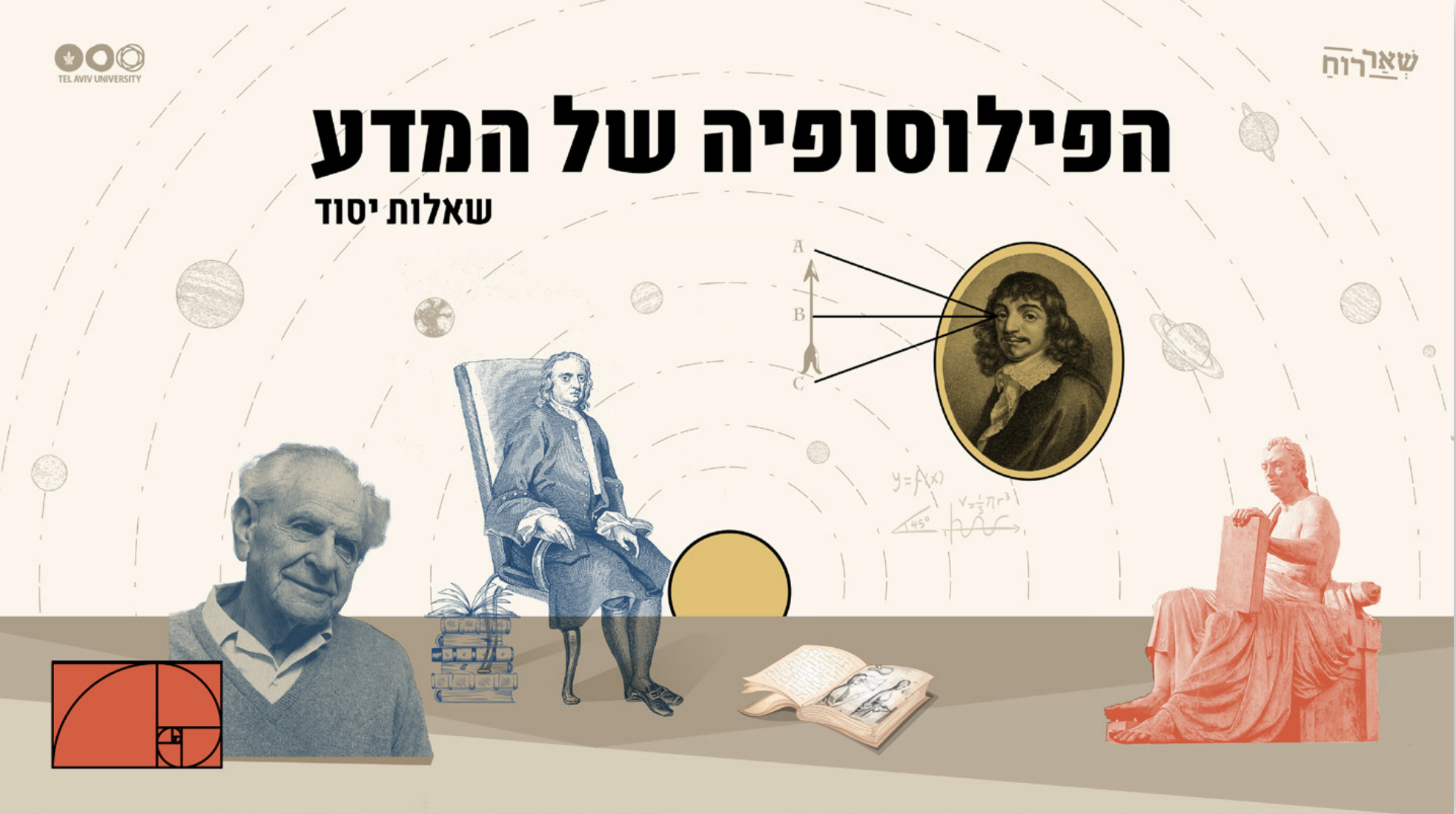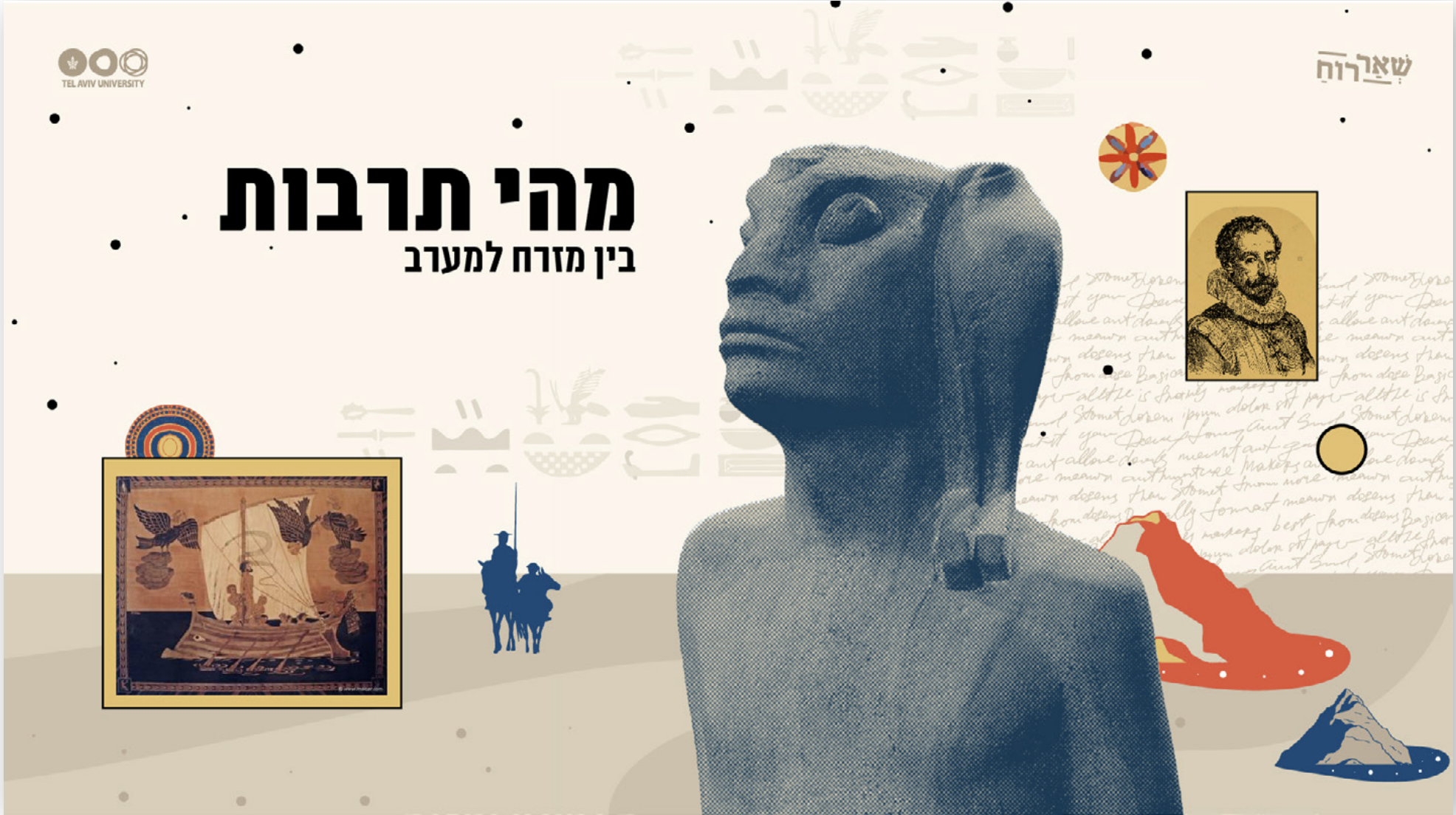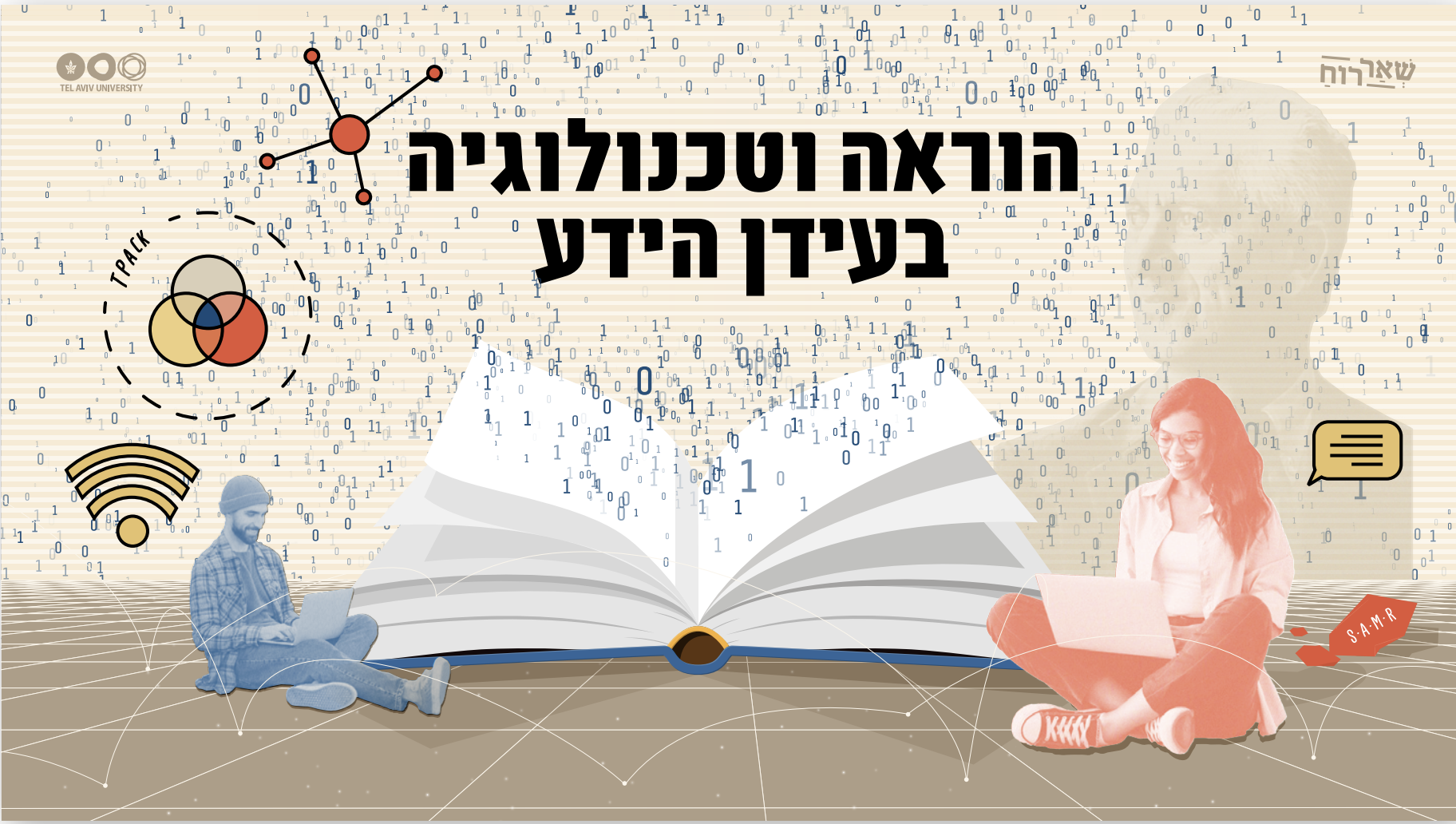Courses
SEMESTER A

The First Three Millenia
Prof. Yoram Cohen
0609-1005-01
Online learning
A general introduction to the ancient Near East from the beginning of the writing civilizations in the 4th millennium till the conquest of Alexander at the end of the first millennium BCE. An overview of the major historical and cultural developments will be given. A special emphasis will be given to the invention of Cuneiform and Hieroglyphic writings and the development and spread of the Alphabet.

Foundational Problems in the Philosophy of Science
Dr. Ori Belkind
0609-1002-01
Hybrid course–combine face to face classes and online learning
This course focuses on central philosophical approaches to science following the scientific revolution in the 17th century and the revolution in physical sciences during the 20th century. Topics discussed include: Francis Bacon’s and Renי Descartes’ early attempts to describe the role of experience and reason in constructing scientific knowledge; Isaac Newton’s philosophical principles for studying nature; David Hume’s skepticism and his critique of inferences from phenomena; the philosophical crisis that followed the collapse of classical physics during the early 20th century; and some of the main philosophical approaches that were developed in response to this crisis, including those of Karl Popper and Thomas Kuhn.

What is Culture ? Between West and East
Dr. Almog Behar
0609-1003-01
Online learning
This introductory course explores the concept of culture as a means of rethinking East- West relations. We discuss inter-cultural transfer and influence, between Babylonian and Greek cultures, the rise of
Christianity and Islam, medieval Arab and European translation legacies, modernity and orientalism, theology and secularism. We discuss the beginning of the epic, comparing the Babylonian “Gilgamesh” to the Greek “Odyssey”; the figures of the prophet and the messenger in the Bible, the New Testament and the Quran; reformers and revivers of religious life, such as Al-Ghazali’s and Augustine’s autobiographies; the Middle Ages’ transformation, translation, and adaptation of the Buddha’s story into Greek, Arabic and Hebrew; the critical reception of “Eastern” poets such as Jalal a-Din Rumi and Rabindranath Tagore in the “West.”

Information and Communication Technologies
Dr. Arnon Hershkovitz
0609-1004-01
This course discusses various implementations of Information and Communication Technologies (ICT) in the teaching process. Technology may bring new opportunities that will enrich teaching processes in both formal learning (e.g., schools, higher education, army, organizations) and informal settings. However, technology may also present teachers with some important academic, pedagogical, social, and technical challenges. During the course, we critically examine models for successful implementations of technology in teaching. We ask whether the technological tail is being wagged by the pedagogical dog, or is it the other way around?
Dead Sea Scrolls: Old and New Perspectives
Prof. Jonathan Ben Dov
Online learning
This course focuses on the scrolls- a vast collection of books from the Second Temple period- found in the Qumran caves. Some of the scrolls describe the life of an isolated community, its regulations, laws and customs. Others describe the books of the Bible and other holy writings from that period, as well as writings of prayer, law, poetry, and magic. These ancient scrolls offer a rare opportunity to study the cultural and religious life of Jews in the Second Temple days. The findings show that key concepts of classical Judaism (which were later formulated by the Sages) were contested the days of the Second Temple. For example, the the collection of the Holy Scriptures, the interpretation of the Bible, the prayer, the Halacha, were all subject to debate. The scrolls are also an important source for understanding how books looked at that time, and how scribes and copyists prepared manuscripts. The course offers a literary analysis of the scrolls, as well as the use of recent technological developments, such as material research of the scrolls and of the Qumran site, and a variety of computing tools, which enable a technological view of the scrolls
Investigating Literature: Fictional Mysteries, Mysteries of Fiction, and the Det
Mr. Dror Mishani
0609-1007-01
Hybrid course–combine face to face classes and online learning
Investigative literature has long been one of the most popular forms of the story telling. It may have started when "Oedipus Rex" was staged in ancient Athens and continues to flourish in the detective stories we read and in TV series we watch today. In this course, we examine some well-known literary investigations, apparently already "solved." But with the help of fictional and real detectives -- from Hamlet and Sigmund Freud, to Edgar Allan Poe, Sherlock Holmes and Miss Marple - we revisit these cases, and also raise some theoretical questions: What can literary investigations teach us? Why should the investigators be investigated? And are ??there mysteries that we will never be able to solve
Climate Change and Sustainability: a Multi-Disciplinary View
Prof. Ruth Ronen
188.0901.01
Online learning
The climate crisis is not only a research topic but mainly a burning problem that affects every aspect of our lives. We encounter the causes and effects of the climate crisis in all areas of life: the environment, society, nature, forms of thought, politics, and the economy.
This online course offers a multidisciplinary examination of the climate crisis and provides a comprehensive picture of it. The lecturers in the course are experts from various fields of knowledge: environmental and atmospheric sciences, climate sciences, biology, industrial ecology, philosophy, history, geography, social sciences (sociology and economics), psychology, architecture (urban planning), engineering, economics, law and public policy.
The course is designed to introduce students to the complexity of the climate crisis and its consequences, but also to examine the range of solutions and courses of action that are possible at the level of the state, of the organizations, and at the level of the individual.
SEMESTER B
Mindfulness and Buddhism: Practice and Theory Then and Now
Dr.Ricardo Tarrasch
Dr. Roy Tzohar
0609-1008-01
Online learning
The course is an introduction to mindfulness meditation (sati, smiti), presenting its Buddhist philosophical and historical foundations; surveying contemporary empirical models that explain and appraise its action and effect; and, dealing with the application of its practice in daily life. The first part of the course provides an overview of mindfulness as a practice, examine its influence on attention, self-regulation, and emotional regulation and explore its cultivation in daily life. The second part focuses on the Buddhist origins and nature of mindfulness meditation. We survey the context, both theoretical and practical, for the emergence of Buddhism in India, and present central Buddhist doctrines and claims (such as the “no-self” claim and scheme of dependent-origination) and the solution they propose to the problem of human suffering, and their unique understanding of the person. The final part of the course examines recent studies appraising the effects of the practice of mindfulness on emotional and cognitive processes, such as resilience: anxiety/stress; pain management; as well as on brain structure and function. We also outline some of the contemporary scholarly models for mindfulness mechanisms of action
A Matter of Life and Death:Medicine and Health on the Pre-Modern World
Prof. Miri Shefer Mossensohn
0609-1009-01
Hybrid course–combine face to face classes and online learning
"Health is Wealth", the most important thing in our lives, right? But what are health, hygiene and disease? What is the medical treatment that transfers us from a state of illness to health? Health, illness and healing are universal experiences but they are far from uniform. Medicine is a science that is particularly influenced by social, cultural and political realities. The tensions around coping with the Covid-19 epidemic, for example the attitudes to masks, vaccines and closures, illustrated for us the variety of perceptions and practices that shape our choices in everything related to our health.
The course examines the ways in which men and women, healers and patients, understood illness, health and medical knowledge from Antiquity to the 18th century. The course focuses, but not exclusively, on the Middle East and the Mediterranean basin; we will also foray into East Asia and Europe in pre-modern times. We will learn about the variety of medical knowledge and clinical applications in previous historical periods, andunderstand how today's medicine and the health systems were shaped by successes and discoveries but also failures.
Democratic Society, Culture, and Education
Dr. Dan Mamlok
0609-1010-01
Hybrid course–combine face to face classes and online learning
What is the meaning of democratic education? This course will address issues pertaining to democratic education, through a critical examination of sociocultural contexts. In particular, the course will look into fundamental concepts of democracy, its origins and its different models in the modern age. In addition, the course will explore citizenship education in Israel and examine the contemporary challenges to democracy by fostering a critical examination of the prevailing social reality.
To Be a Palestinian: Literature, History and the Question of Identity
Dr. Manar Makhoul
0609-1011-01
Hybrid course–combine face to face classes and online learning
This course focuses on the question of Palestinian identity in Israel since 1948, through an inter-textual reading of literature. The course offers a critical discussion and deals with a selected corpus, including works by Mahmoud Darwish, Ghassan Kanafani, Kamal Salameh, Anton Shammas and others. The course also addresses theoretical questions on identity and literature in general, as well as the Palestinian-Israeli history and politics since 1948. We will present the issue of question of the ?evolution? and multiplicity of Palestinian identities, therefore the course utilises the literary texts as fertile ground to raise important historical, cultural, social and political questions.
The course will be in the Arabic language, and there is a prerequisite of knowing the Arabic language
Love and Courtship in the Shakespearean Imagination
Prof. Noam Reisner
0609-1012-01
Hybrid course–combine face to face classes and online learning
Hakespeare's name today represents a global cultural brand, and his plays and poems represent for many, still, the gold standard of Western culture. Especially, Shakespeare is still considered by many in the Anglophone world as the greatest of love poets. In this course, we will read closely two of Shakespeare's most famous plays, the comedy "A Midsummer Night's Dream" and the tragedy "Romeo and Juliet", focusing especially on the world of young lovers and the connection in these plays between the imagination, love and poetry.
We will explore the unique powers of the Shakespearean imagination and assess its relevance to us today. We will look at the connection in Shakespeare's thought and art between the particular and the universal and trace the unique ways by which Shakespeare introduces us to complex and rich characters through poetic expression and the theatrical medium. We will also learn about the world of Elizabethan theater in the Renaissance and approach our plays as works meant for the stage and the interpretation of actors. Throughout, we will ask: if, as Shakespeare knew to say, "all the world's a stage, and all the men and women merely players", what can his works teach us about the ways we exist in the world and conduct ourselves as thinking, often flawed, beings who come together to form fragile societies in which to play out our lives?
Requirements:
English at "ptor" competency level. We will be reading the plays in the original English alongside a Hebrew translation.
Viewing recorded performances of "A Midsummer Night's Dream" and "Romeo and Juliet" of recent productions and/or reading the plays, either in original English or in translation.
What is Judaism?
Dr. Jeremy Fogel
0609-1013-01
Hybrid course–combine face to face classes and online learning
This course is a comprehensive introduction to the history of Jewish thought, combining a broad chronological historical view with a textual examination of fundamental issues in the history of Jewish ideas. Throughout the course, we will engage with renowned scholars, enabling us to explore key milestones in Jewish cultural history. Our journey will encompass a wide spectrum, including the Bible, the Sages, Jewish philosophy and mysticism, Hasidism, traditionalism, Zionism and the various denominations in contemporary Judaism. In addition to the conversations with the experts of the particular periods, we will also focus on texts from each station that reflect characteristic conceptions around the three axes of thought that will accompany our learning process: universalism versus particularism, gender, and ethics in relation to Halacha.
We hope that all students participating in this course will gain a broader and deeper view of the history of Jewish ideas and culture, as well as a greater ability to think independently and critically about urgent identitarian, cultural, religious and political issues prevalent in the Jewish-democratic country in which we live.
Climate Change and Sustainability: a Multi-Disciplinary View
Prof.Colin Price
188.0901.02
Online learning
The climate crisis is not only a research topic but mainly a burning problem that affects every aspect of our lives. We encounter the causes and effects of the climate crisis in all areas of life: the environment, society, nature, forms of thought, politics, and the economy.
This online course offers a multidisciplinary examination of the climate crisis and provides a comprehensive picture of it. The lecturers in the course are experts from various fields of knowledge: environmental and atmospheric sciences, climate sciences, biology, industrial ecology, philosophy, history, geography, social sciences (sociology and economics), psychology, architecture (urban planning), engineering, economics, law and public policy.
The course is designed to introduce students to the complexity of the climate crisis and its consequences, but also to examine the range of solutions and courses of action that are possible at the level of the state, of the organizations, and at the level of the individual.
Introduction to Chinese Philosophy
Prof. Galia Patt -Shamir
0618.1043.01
Hybrid course–combine face to face classes and online learning
Where is the way (dao) to be found and how can it be pursued? How does the search for way differ from the philosophical search for truth? What is the sense of perfection in ways of life without God? What is knowledge in a philosophy without Truth? What can philosophies from China suggest regarding the riddle of life and death?
In the course we will encounter various responses to these questions from philosophical perspectives that developed in China, in particular, from the so-called ?Daoist? and ?Confucian? perspectives. We will consider ideas regarding the way as ongoing motion, which necessitates change and transformation with no fixed essence.
SYLLABUS

